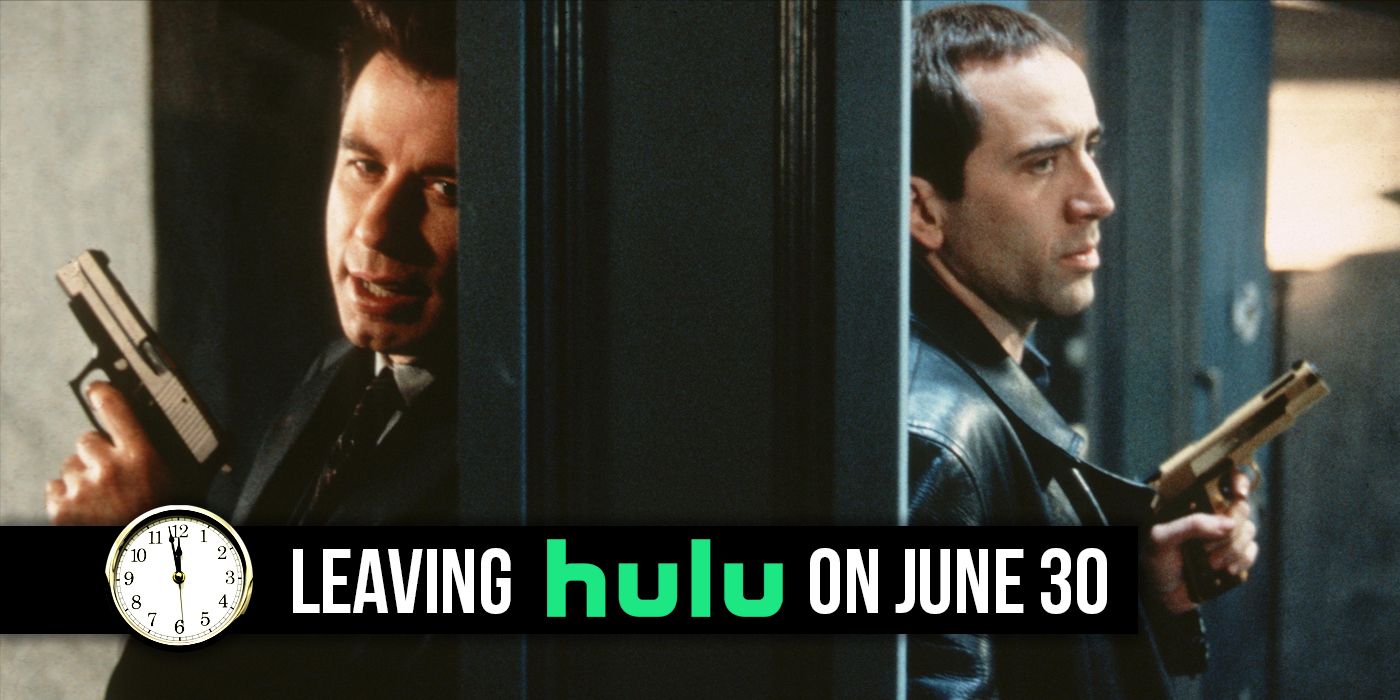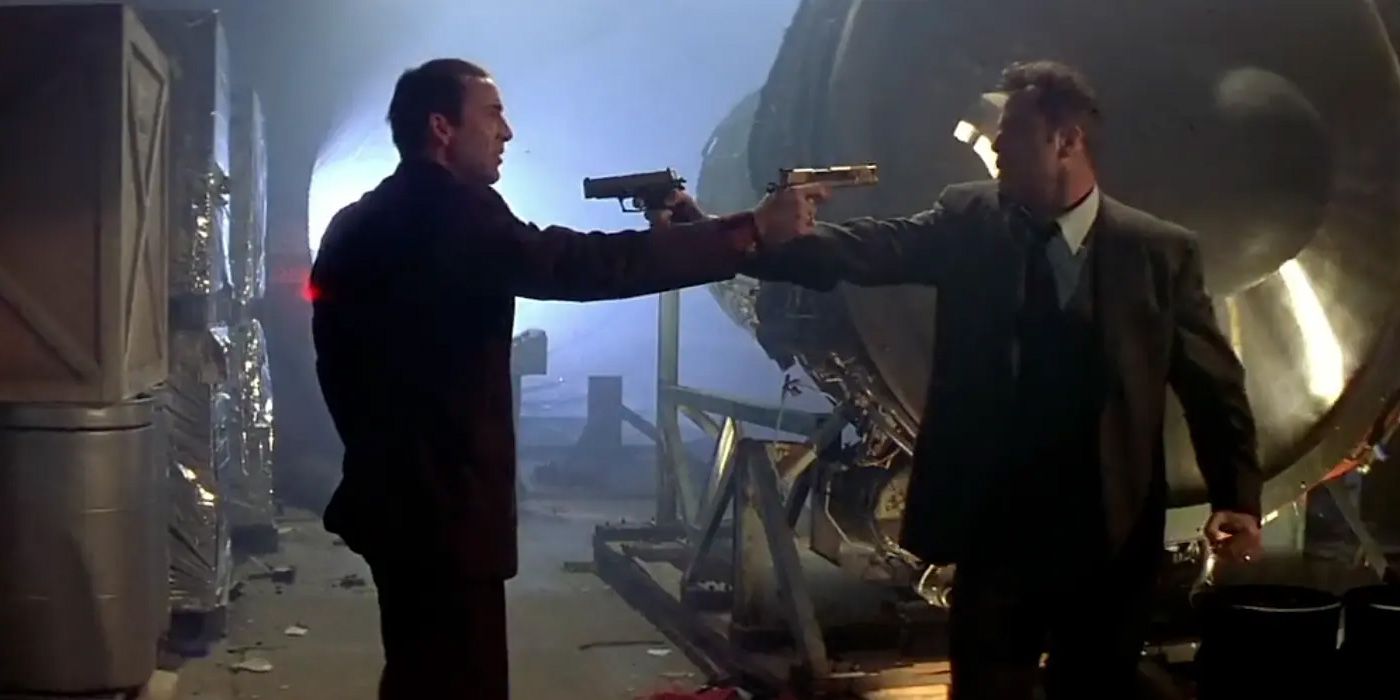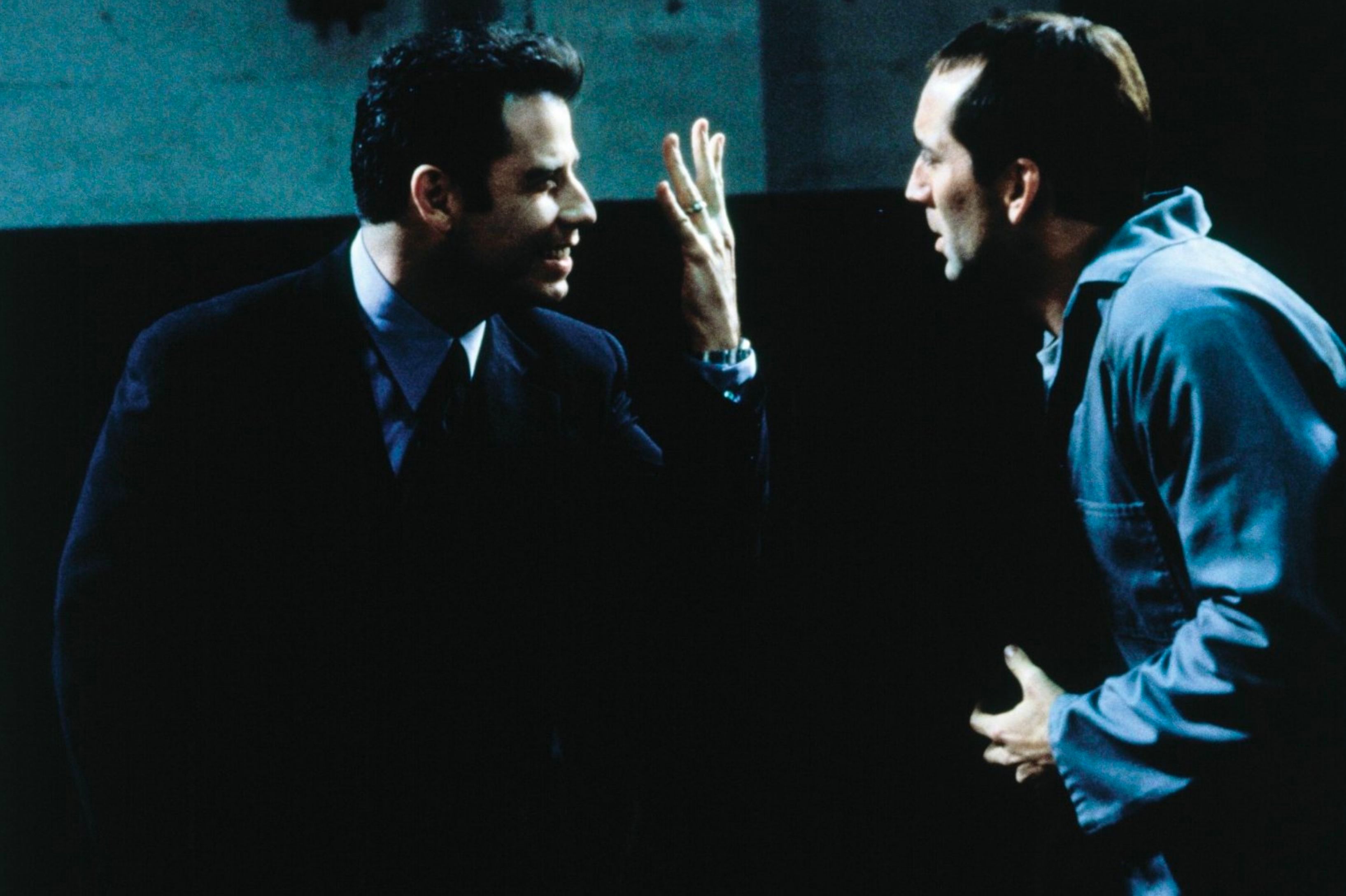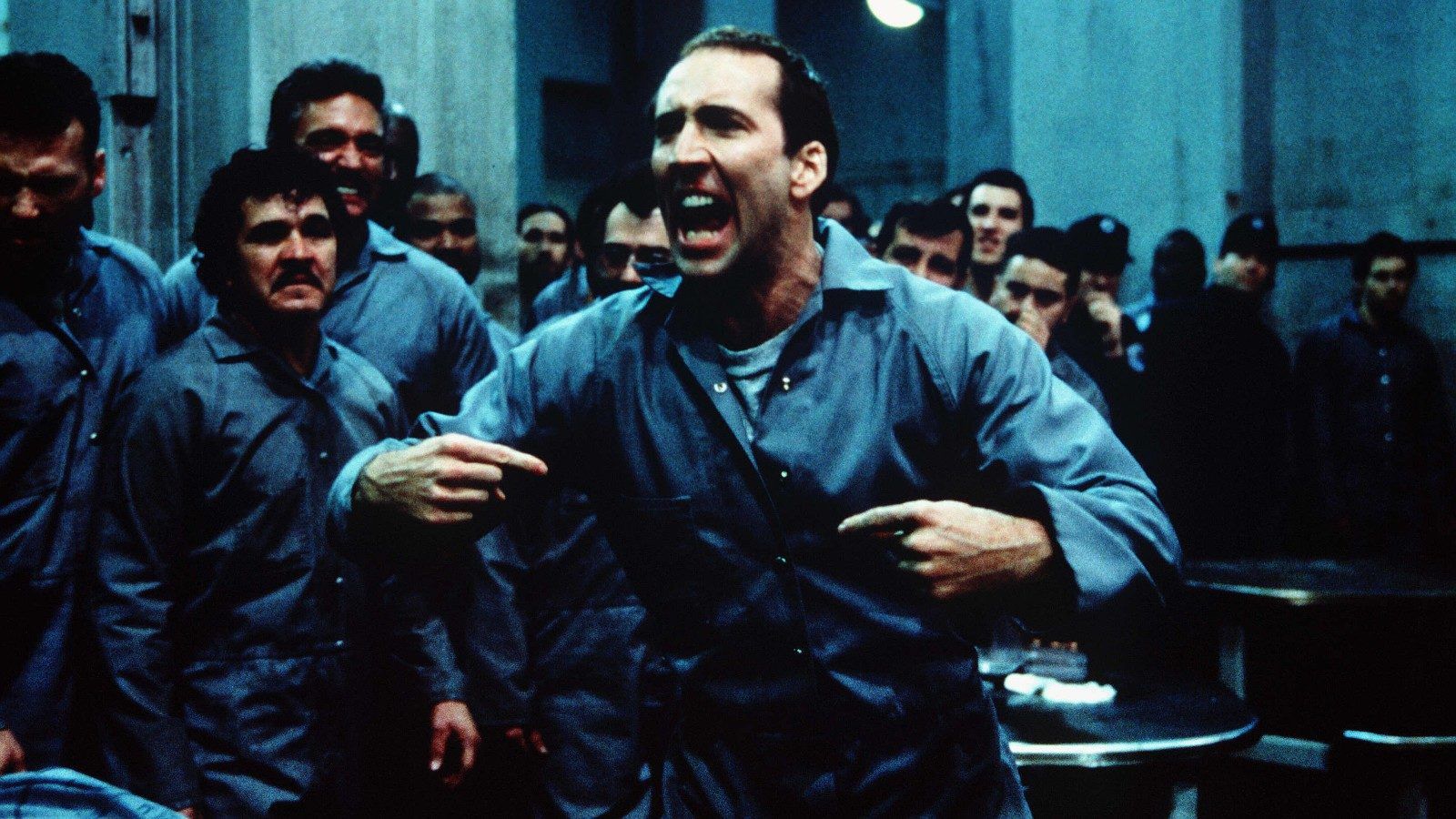In February, we learned that a Face/Off sequel was coming from Godzilla vs. Kong and You’re Next director Adam Wingard. And really, the only way you could make Face/Off today is if it were a sequel rather than an original property. Studios have largely retreated to the safety of IP (Intellectual Property) where the brand is the star rather than actors who have demands and make choices and can’t be as easily controlled as film rights. And yet when you have the freedom to rely on “star power”, you can get something kind of magical in its lunacy. In 1997, Face/Off was a summer blockbuster with a crazy hook, but over 20 years later, it feels like director John Woo really got away with something by indulging the craziest impulses of his two stars.
For those unfamiliar with Face/Off, the film is about FBI agent Sean Archer (John Travolta), who has been tracking freelance terrorist (the “freelance terrorist” being a weird 90s staple also seen in films like Die Hard with a Vengeance and The Jackal) Castor Troy (Nicolas Cage) for years, and has been pushed to his breaking point ever since Troy tried to kill Archer and accidentally killed Archer’s young son instead (yes, before the opening credits are even over, a little boy has been killed by a sniper rifle as the sneering faces of wooden horses on a merry-go-round cruelly mock this twist of fate). Sean manages to capture Castor and knock him into a coma, but unfortunately Castor has planted a bomb somewhere in Los Angeles and the only one who knows the location is Castor’s brother Pollux (Alessandro Nivola). To earn Pollux’s trust and learn the location of the bomb, Sean goes in for a special surgery that swaps his face with Castor’s. He then goes undercover in a secret super-max prison that uses magnet boots. However, it turns out Castor isn’t as comatose as previously believed, forces the surgeon to give him Sean’s face, kills everyone who knew about the mission, and steals Sean’s life. Sean must then break out of magnet boot prison and reclaim his identity and save his wife (Joan Allen) and daughter (Dominique Swain).
To understand why this is such a genius movie, you can’t look at where Cage and Travolta are at their careers right now. You have to rewind back to the mid-90s. Both men were undisputed A-listers. Travolta had been a massive star in the 1970s thanks to Welcome Back, Kotter, Saturday Night Fever, and Grease. However, his career had faltered in the 1980s until it was basically resurrected by Pulp Fiction, which earned Travolta an Oscar nomination for Best Actor. Travolta was able to ride the success into films like Get Shorty and his first collaboration with Woo, Broken Arrow. Cage was also riding high in the 90s after establishing himself as a critical darling in the 1980s with films like Moonstruck and Raising Arizona. Cage won the Oscar for Best Actor in 1996 for his performance as a raging alcoholic in Leaving Las Vegas but had also proved his bona fides as an action star around the same time with performances in Jerry Bruckheimer productions The Rock and Con Air. There’s a strong case to be made that both Travolta and Cage were at their peak in 1997.
Given their clout, the studio could sell the film on their names, but then you have the influence of director John Woo. Woo is a legendary and hallowed name in the history of action cinema having basically reinvented the genre with his Hong Kong films A Better Tomorrow, The Killer, and Hard Boiled. Once he came stateside, he started making waves with the utterly delightful Jean-Claude Van Damme B-movie Hard Target before landing a bigger budget with Broken Arrow. In Broken Arrow, you can see Travolta happily chewing the scenery, but he’s up against Christian Slater’s hero, who’s playing everything pretty straight rather than trying to match Travolta’s unrelenting intensity. Face/Off solves this problem by giving Travolta a perfect scene partner in Cage and then wrapping them in the operatic overtones of Woo’s direction.
From the opening action scene, you can see that everyone has decided to crank their style to 11, and somehow it works. The premise—an FBI agent and a freelance terrorist swapping faces—is so ridiculous that any attempt to play it seriously would only diminish the impact of the movie. It’s not that Face/Off is winking at the audience as much as it’s hammering the melodrama of every single moment for maximum lunacy. It’s here to put on a show, and does so without any restraint, which is incredibly welcome because I don’t think anyone wants restraint in a movie where dudes are surgically swapping their visages.
We don’t get these movies today because we’ve attached this odd sense of “realism” to our movies. We want to be emotionally invested and have some kind of explanation that lets us know that everything is under control. In other words, we need our movies to be “grounded,” whether that’s with some tortured exposition or thematic heft so that we can be assured we’re not simply consuming empty calories. That means when Godzilla and King Kong are fighting, it’s because it’s grounded in our understanding of how alpha predators work in the animal kingdom and the villain wants a Mechagodzilla so he can control the balance of power and I’m already bored. In Face/Off, Sean and Castor are enemies who swap faces and want to kill each other. Travolta and Cage are trying to act each other off the screen with the broadest performances possible. That’s it, and it works.
It’s neat to see things adapted into cinema, but it also creates such a risk-averse environment that everyone gets limited by being respectful to the IP. To try and be bigger than the property is seen as a sign of disrespect, so everyone has to try even harder to make sure that everything is compartmentalized into neat little boxes. That can still make for really enjoyable movies, but it also deprives us of getting anything bonkers because the IP becomes the dominate force. For example, Cruella can have a delightful Emma Stone performance and some colorful direction from Craig Gillespie, but it must ultimately still serve its progenitor, One Hundred and One Dalmatians.
Watching a film like Face/Off is liberating because it’s free to be madcap. Yes, it was a summer blockbuster intended to make money for Paramount (and with a worldwide take of $245 million off an $80 million budget, it was reasonably successful, especially for an R-rated movie), but back then studios could make money by saying “Let’s throw a bunch of cash at Travolta and Cage, let them play their characters however they want, and see how it turns out.” There were no concerns about “mythology” or “what the fans would think.” It was star power at its most bizarre and refreshing. We will probably never see its like again even with a sequel on the way.




